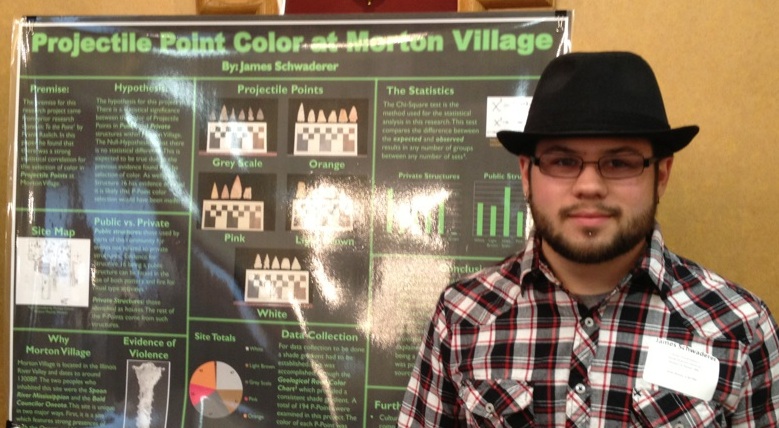-

New Book published by Dr William Lovis – The Geoarchaeology of Lake Michigan Coastal Dunes
The Geoarchaeology of Lake Michigan Coastal Dunes, the recently released book coauthored by Drs. William Lovis (MSU Anthropology), Alan Arbogast (MSU Geography), and G. William Monaghan (Indiana University), is the culmination of almost seven years of research and writing. Published in the Michigan Department of Transportation Environmental Series, edited by MSU alumnus James Robertson, and […]
-
Anthropology PhD Student Meskerem Glegziabher awarded a Fulbright-Hays Doctoral Dissertation Research Abroad
The Department of Anthropology is very pleased to announce that PhD Student Meskerem Glegziabher has been awarded a Fulbright-Hays Doctoral Dissertation Research Abroad award Her research project is entitled “India Rising: Understanding Development, Gender and Urban Poverty Alleviation in Delhi’s Jhuggi Jhopris.” She will be conducting ethnographic and archival research in Delhi, India and will […]
-
Anthropology PhD Student Emily Riley awarded a Fulbright-Hays Doctoral Dissertation Research Abroad
The Department of Anthropology is very pleased to announce that PhD Student Emily Riley has been awarded a Fulbright-Hays Doctoral Dissertation Research Abroad. Emily’s research, entitled “The Fight Against Wastefulness’: Legal and Political Engagement in Senegal,” will investigate the legal and political efforts for social change in Senegal, specifically examining the history and current impacts of […]
-
Department of Anthropology Sponsors Interdisciplinary Graduate Student Conference on Migration
The Department of Anthropology is happy to announce that it will be sponsoring Migration without Borders, an interdisciplinary graduate student conference on migration at Michigan State University on October 5th & 6th. This conference aims to facilitate and foster an interdisciplinary, trans-institutional cohort of scholars interested in issues of migration and mobility. Panelists are scholars at various […]
-
Dept of Anthropology Morton Village Archaeological Fieldschool Launches Blog
In order to document and communicate their ongoing research and outreach activities, the MSU Department of Anthropology Morton Village Archaeological Fieldschool in launching a blog this season. Located at mortonvillage.anthropology.msu.edu, the blog will feature regular posts and videos by fieldschool staff and students. Located in the central Illinois River Valley near Lewiston, Illinois, the Morton Village […]
-
Terry Brock Receives Dissertation Research Grant
Congratulations to Terry Brock on being awarded an SRI Foundation Dissertation Research Grant for his research entitled: “We All Walked Together”: The Transition From Slavery to Freedom on a 19th century Maryland Plantation.
-
“ANP 464: Archaeology Field School” Receives Honorable Mention
Dr. Lynne Goldstein and Terry Brock (PhD Candidate) received an honorable mention for the 2012 AT&T Faculty – Staff Award Competition in Instructional Technology. They received this honorable mention for their development of ANP 464: Archaeology Field School, which aims to engage the public with archaeology.
-
Sean Dunham is Recipient of Prestigious Award
Sean Dunham (PhD Candidate) is the recipient of the Society for American Archaeology Student Paper Award for the paper titled “Late Woodland Landscapes in the Eastern Upper Peninsula of Michigan.” Sean was presented with this award at the 77th Annual Meeting of the Society for American Archaeology, a national organization, in Memphis, TN on April 20th, 2012. […]
-

Undergraduate Students Present Research
On Friday, April 13th, 2012, eight undergraduate students presented their research at the annual University Undergraduate Research and Arts Forum (UURAF) at MSU. James Schwaderer: “Project Point Color at Morton Village” (Winning Poster) – Advisor: Dr. Jodie O’Gorman Janine Baranski: “A Study of the Associations between Offspring Survival and Birth Order, Offspring Sex and Previous […]
-
Tazin Karim awarded Disciplinary Leadership Endowment Fellowship from the Council of Graduate Students and the Graduate School
Tazin Karim, doctoral candidate in medical anthropology, was recently awarded the Disciplinary Leadership Endowment Fellowship from the Council of Graduate Students and the Graduate School. This award recognizes her participation and demonstrated leadership in the field of anthropology including professional societies at the local, national and international levels. In particular, Taz was acknowledged for her […]